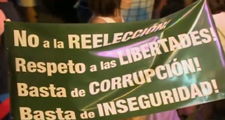When bad government policies create problems, government officials often pretend that the causes are unrelated to the effects. Instead they enact further bad policies. They may even seek to outlaw the effects, as if prohibiting puddles could stop the rain.
Suppose a government greatly expands the money supply, which leads to a general rise in prices obvious enough to cause people to complain about sticker shock. Governments may try to “solve” the problem with slogans and price controls.
In Argentina, which is lurching toward 30 percent inflation, they’re skipping the Whip Inflation Now buttons and going straight to the price controls. The government has temporarily frozen prices in the largest supermarkets. The two-month freeze is the result of an “agreement” between the trade group representing big stores and the Argentine government.
Now what happens?
Well, customers will race to the big stores, but small stores won’t lose business except in the short run. As the inflated demand outstrips a deflating stock of goods, the big stores and their suppliers won’t see much point in replacing goods that they can sell only unprofitably or at a loss. If they do replace the sold-off stock, they’ll likely do so with shoddier stuff in smaller packages.
Monetary inflation imposes hardship; price controls worsen the hardship. By the same logic, you help somebody whose leg you just broke by smashing his other leg too. You may think that this procedure would restore health, but actually—no.
This is Common Sense. I’m Paul Jacob.
Note on the illustration: The French assignat was an early instance of paper money inflation in Europe.
